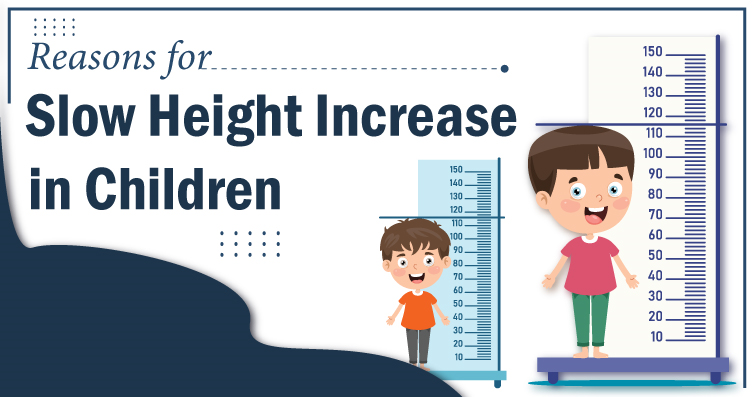What determines your height?
The genetic code, or DNA, is the most important factor in
determining a person's height. The DNA sequence variants that people inherit
account for about 80% of their height, but the mystery remains about which
genes these variants are in and how they affect height. Nutrition, hormones,
and medical issues are just a few factors that can affect height increase during
development.
How to increase height right now?
Until you reach the age of 21, your height will continue to rise.
So, if you're 18 and wish to gain a few inches in height, now is the time to
start taking the following steps:

1. Eat a healthy breakfast.
2. Make sure you get adequate sleep.
3. Make an effort to exercise on a consistent basis.
4. Avoid smoking, alcohol, and caffeine.
5. Do some yoga. If at all feasible, do so with the help of an
instructor.
How to get taller in your teen years?
During your adolescent years, your body is at its best. Human growth hormone is created by the body naturally, and experts have long
recognized that it is essential for young people's growth and cell formation.
It also contributes to body composition, as well as muscle and bone production.
To acquire height, a growth hormone must be released. Many people
believe that once they reach maturity, they cease growing. Even after turning
18, a person can grow a few inches taller. This can be done by incorporating
some healthy habits into your lifestyle.
You have a good chance of generating HGH at your age (Human growth
hormone). You must be determined and adhere to these guidelines.
1. A good night's sleep of 8–9 hours is a must.
2. You should be under very little or no stress at this age. You can keep calm while achieving your objectives with a well-thought-out strategy.
3. Swimming, skipping, running, sprinting, and stretching are all good options.
4. Protein, iron, and calcium-rich foods must be consumed. Daily consumption of eggs and milk is required. Iron is found in spinach and beets. You can also look for other fruits and vegetables that are high in vitamins and nutrients. It is essential to eat nutritious foods and have a healthy lifestyle.
5. Maintain ideal body weight. Obesity can have an adverse effect on your height. Obesity can cause several health problems too. As a result, it's critical to maintain healthy body weight with a well-balanced diet and regular exercise.
6. Sporting activities are also beneficial. You must carve out time from your hectic routine to engage in outdoor activities.
This must be done on a consistent basis. And you must remain
focused since, after a certain age (which differs for boys and girls), the
body's growth slows down gradually due to a decrease in growth hormone
synthesis. You will not see any development in your height after a certain age.
So this is your one and only chance.
Why do you stop growing in your teens?
Epiphyses, or growth plates in the bones, causing bones to grow.
As puberty progresses, the growth plates develop, and near the end of puberty,
they fuse and stop growing.
The complete skeleton does not stop growing at the same moment;
the hands and feet stop growing first, then the arms and legs, and lastly the
spine. Growth slows and eventually stops once a child has achieved puberty and
entered the adult stage of development.
This indicates that while growth does not halt at a certain age,
'early developers' will stop expanding before late developers. There is no
further development after the growth plates merge, and we all gradually
decrease as we grow older.
Hormones regulate normal growth in a number of ways:
● The pituitary
gland produces growth hormone, which is the most significant element.
● The thyroid
hormone is a hormone produced by the thyroid gland.
● During
puberty, sex hormones such as testosterone and estrogen are essential for
growth.
● Normal height
ranges change between continents, races, and ethnic groups, therefore a person
who is medically or socially characterized as short or 'tall' may have a varied
height increase depending on where they reside or their cultural
background.
There are also differences in the height of each population, and
most persons who are very short or very tall are perfectly healthy, albeit at
the extremes of the typical range for that population. If a child is growing
slower or faster than projected, a medical problem affecting growth is more
likely.
Reasons for slow height increase in children:

● Deficiency of thyroid
hormone or growth hormone.
● Conditions in which the
growth hormones are normal but the skeleton is abnormal. This can be caused by
a variety of conditions, including Turner syndrome and achondroplasia.
● A child with a serious
stomach or chest infection, for example, may grow slowly as a result of an
illness that affects growth.
Who should see a doctor about their height?
If a child's growth is slower or quicker than predicted, or if he
or she appears to be unusually short or tall in comparison to other children
his or her age, a doctor should be called.
Do height boosters really work?
Treatment for a medical ailment or a hormone shortage will assist
the youngster in catching up and approaching their adult height potential.
There are no medical (chemical) procedures that will increase height once the skeleton has finished developing.
What can you do about height increase during
teen years?
Artificial growth hormone can be provided to help children increase
height if tests reveal a growth hormone deficiency.
A person's height, on the other hand, cannot be altered once they
have stopped growing. Treatment will only enhance a child's height in a very
small percentage of cases.
Height is mostly determined by genetics, and most people do not
get any taller after the age of 18. On the other hand, a healthy diet during
childhood and adolescence can help you attain your full height potential.
If you're uncomfortable with your height, there are a few simple
things you may do to improve your appearance and self-confidence. Good posture,
the use of shoe inserts or heels, and the lifting of weights to build muscle
are all instances of this.
Is Height and Health Related?
While there has not been any
concrete study that correlates height with health, experts do agree that a
person taller than 5 feet 3 is less
likely to get coronary heart disease.
But we must keep in mind that
heart health is determined by a range of other equally important factors such
as exercise, lifestyle, quality of sleep, etc.
Moreover, being short has its
own set of advantages. According to studies, those who are shorter are at a
lower risk of developing blood clots than those who are taller.
Plus, history is full of
examples of people who were short but extremely successful. A few names that
come to mind immediately include Napoleon Bonaparte, Winston Churchill, Mahatma
Gandhi, Charlie Chaplin, and more.
The key takeaway for us
should be that health and success are not determined by height alone. In fact,
height has no role to play in how successful you are in life. If you are
disciplined and focused on your goals, despite a short stature you will scale
great heights in life.
The Bottomline
How short or tall are you in no way determines the amount of
success or happiness you will have in your life. There is a whole list of short
men and women who have achieved unprecedented success in their respective
fields.
● Maradona, the
great Argentinian footballer, was only 1.65m tall.
● Bonaparte,
the great French Military leader, was only 1.68m tall.
● Ludwig van Beethoven,
the greatest composer of the 20th century, was only 1.60m tall.
● And the list goes on.
So, if you're feeling down about your height, the greatest thing
you can do is quit pitying yourself. Seek persons who you can emulate. We are
confident that you will find plenty of motivation and inspiration to focus on
your abilities.
Furthermore, concentrating on your abilities and other areas of
personal development might divert your attention away from your height.
Always remember, people will never remember how
tall you are, but they will always remember the kind of person you are.



 Contact Us
Contact Us






 Hospitals
Hospitals
 Doctors
Doctors
 Diagnostic
Diagnostic
 Pharmacy
Pharmacy
 Health Tips
Health Tips
 Blog
Blog




















